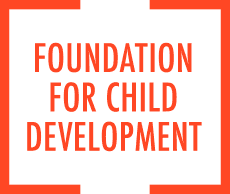https://www.fcd-us.org/getting-it-right-webinars/
2020 SUMMER SERIES
This three-part Getting it Right Webinar Summer Series highlights key takeaways from the Foundation for Child Development’s new publication, Getting it Right: Using Implementation Research to Improve Outcomes in Early Care and Education.
This publication provides insights into the value of including implementation research in the study of early care and education (ECE) interventions and its potential to improve programs and policies and achieve stronger outcomes for all young children. Learn more.
WEBINARS ON DEMAND
Getting it Right: Using Implementation Research to Improve Outcomes in Early Care and Education Virtual Launch
Getting it Right PART 1 | What more do we need to know about high-quality ECE programs?
Our featured presenters explored what more we need to know in implementing high-quality ECE programs to achieve stronger outcomes for young children. The discussion focused on what instructional content and strategies promote children’s learning, how professional development and ongoing learning can contribute to improved practice, and how learning environments can better support dual language learners. The conversation also delved into challenges and opportunities in building and scaling high-quality ECE programs to meet the needs of young children.
In this webinar, presenters highlighted key takeaways from the publication as it attempts to answer several questions for the field: What instructional content and strategies are tied to positive child outcomes? What more do we need to know about supporting dual language learners and bilingual education? What elements of coaching lead to changing teacher practice? How can we build effective and sustainable systems of on-going professional development? How can quality programs be brought to scale? How can we ensure that programs are scaled in a way that promotes the development of children from diverse racial/ethnic, socioeconomic, cultural, and linguistic backgrounds?
Featured Presenters:
Linda Espinosa, University of Missouri-Columbia
Dale Farran, Vanderbilt University
Jacqueline Jones, Foundation for Child Development
Robert Pianta, University of Virginia
Jason Sachs, Boston Public Schools
Discussant: Ellen Frede, National Institute for Early Education Research
Getting it Right PART 2 | Implementation Research in Early Care and Education
Early care and education programs do not follow a single program model. Understanding program purpose, context, setting, and the surrounding conditions all contribute to our understanding of how programs, practices, and policies vary in implementation. The conversation examined several implementation research frameworks and approaches, highlight the contribution of qualitative research, and underscore the importance of equity-focused implementation research. Through implementation research, we can learn about how and why a program works, under what conditions, and for whom.
In this webinar, presenters highlighted key takeaways from the publication as it attempts to answer several questions for the field. What can we learn from implementation research principles to lead ECE programs, practices, and policies to better outcomes for young children? How can various implementation research designs address questions relevant to the field? How is improvement science different from implementation science? How are qualitative studies helping us understand variation across sites and localities implementing evidence-based programs? How can equity-focused implementation research be an effective tool for reducing bias in evaluations?
Featured Presenters:
Tamara Halle, Child Trends
JoAnn Hsueh, MDRC
Milagros Nores, National Institute for Early Education Research
Sharon Ryan, Rutgers University
Sara Vecchiotti, Foundation for Child Development
Discussant: Caroline Ebanks, Institute of Education Sciences
Getting it Right PART 3 | Moving Towards Equity Through Implementation Research
Now, more than ever, researchers, practitioners, and policymakers are thinking about the importance of equity in early care and education programs, policies, and practice. Essential conversation continues about how the influence of racism, discrimination, and poverty shapes ECE. Conducting implementation research with an equity perspective helps define opportunities for equity, identify inequities that may impact outcomes, and ensures that the research itself does not introduce biases or perpetuate inequities.
In this webinar, presenters shared insights about how equity-focused ECE research attempts to address the needs of children from diverse racial/ethnic, socioeconomic, cultural, and linguistic backgrounds. The following questions are addressed: What strategies do an equity-focused implementation research study employ across various stages of research? How can a Social Determinants of Early Learning framework be used to guide researchers in addressing systemic inequities? How can ECE programs foster early bilingualism while improving outcomes for children? What can we learn from the Boston Public Schools’ experience in moving towards achieving equitable outcomes?
Featured Presenters:
Linda Espinosa, University of Missouri-Columbia
Iheoma U. Iruka, HighScope Educational Research Foundation
Jacqueline Jones, Foundation for Child Development
Milagros Nores, National Institute for Early Education Research
Jason Sachs, Boston Public Schools
Discussant: Kristine Andrews, Child Trends
